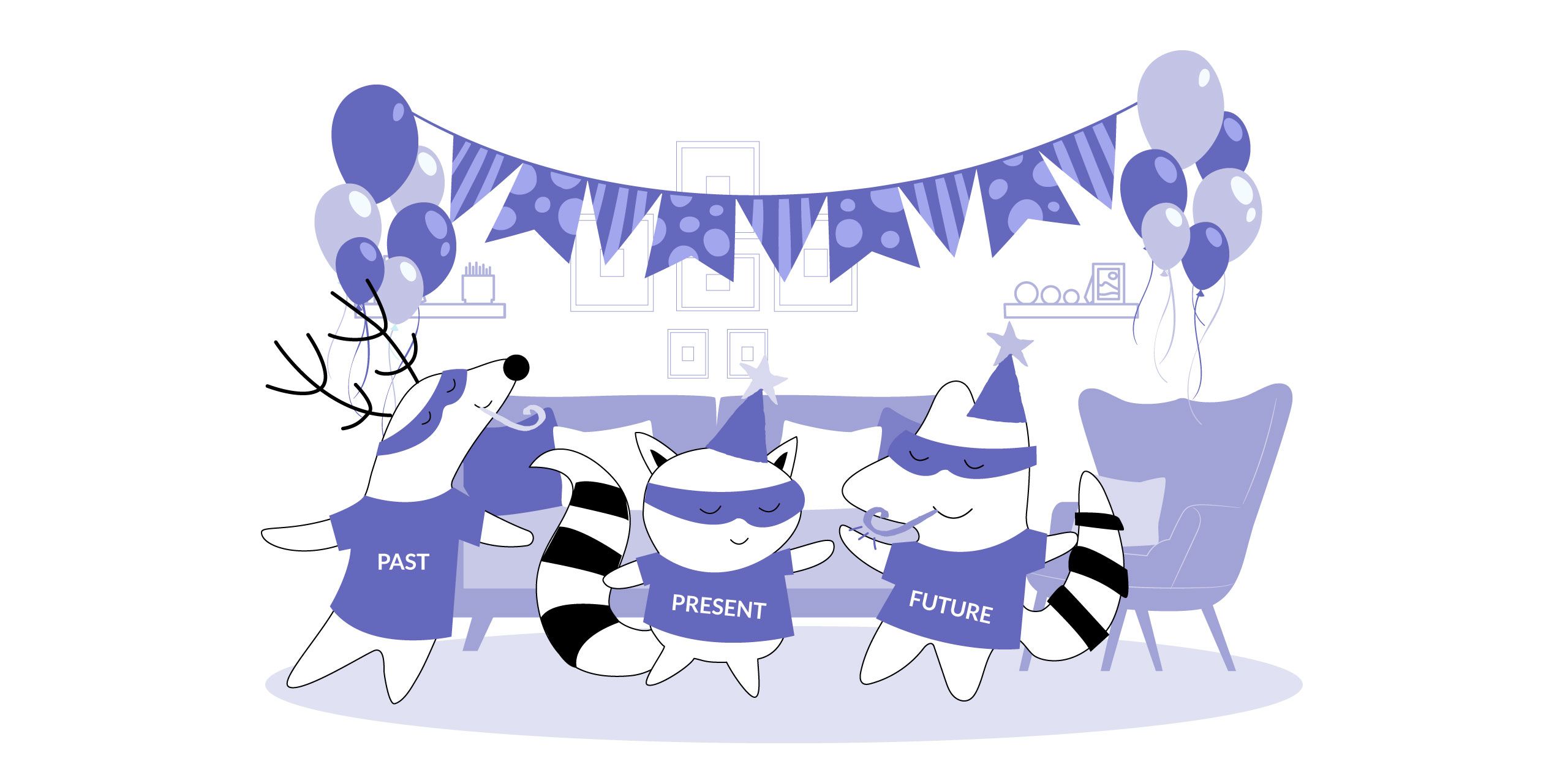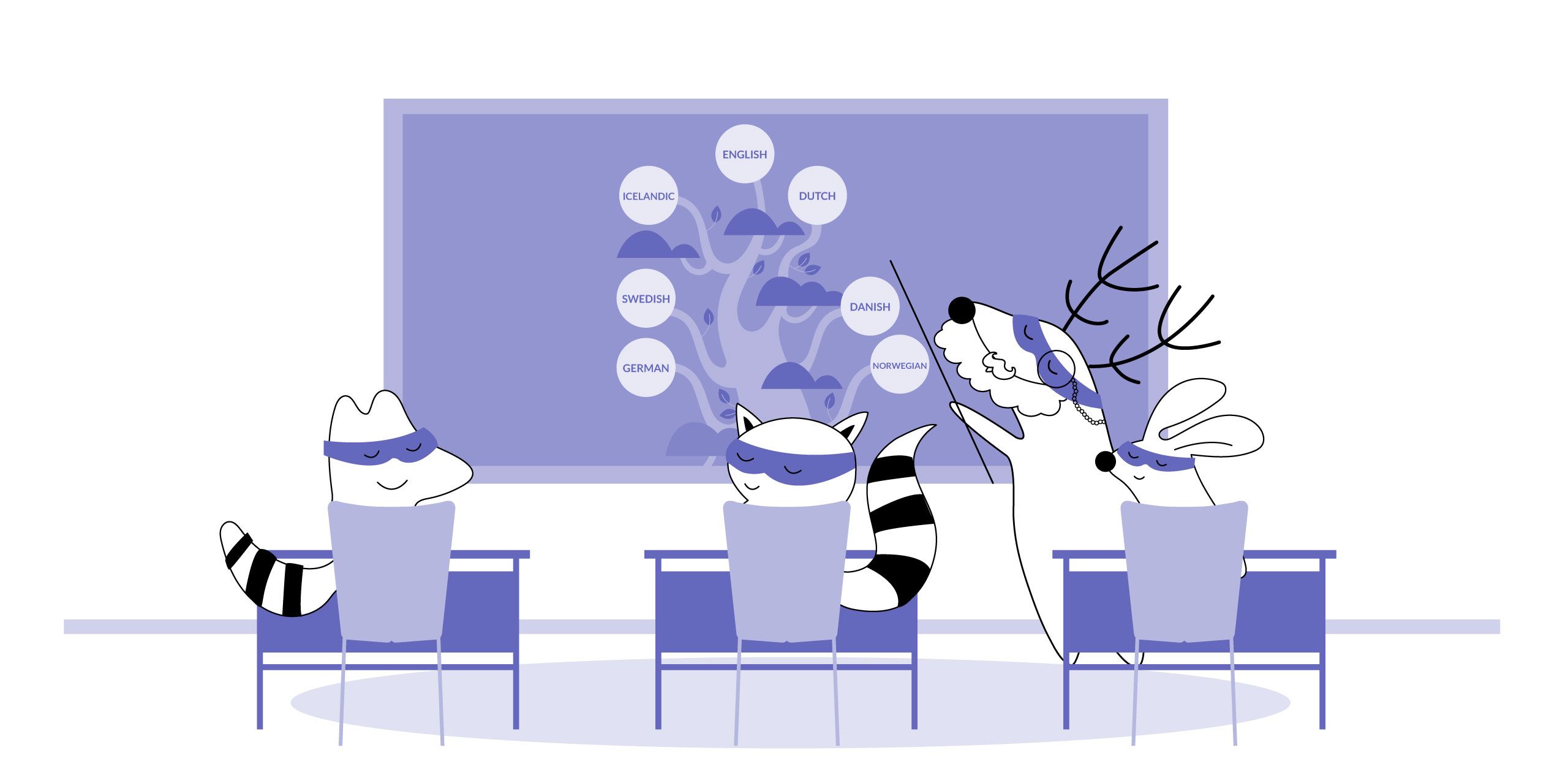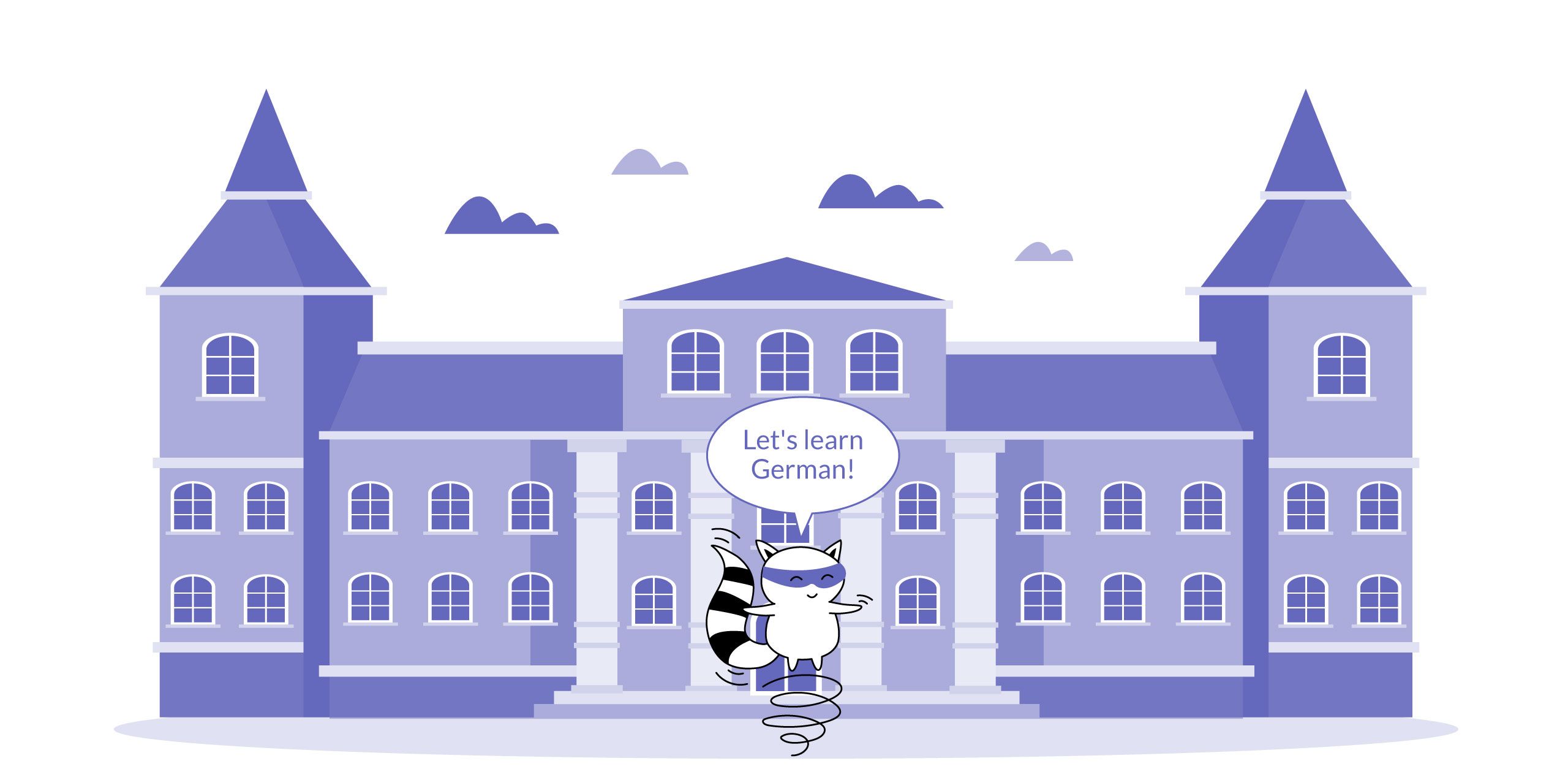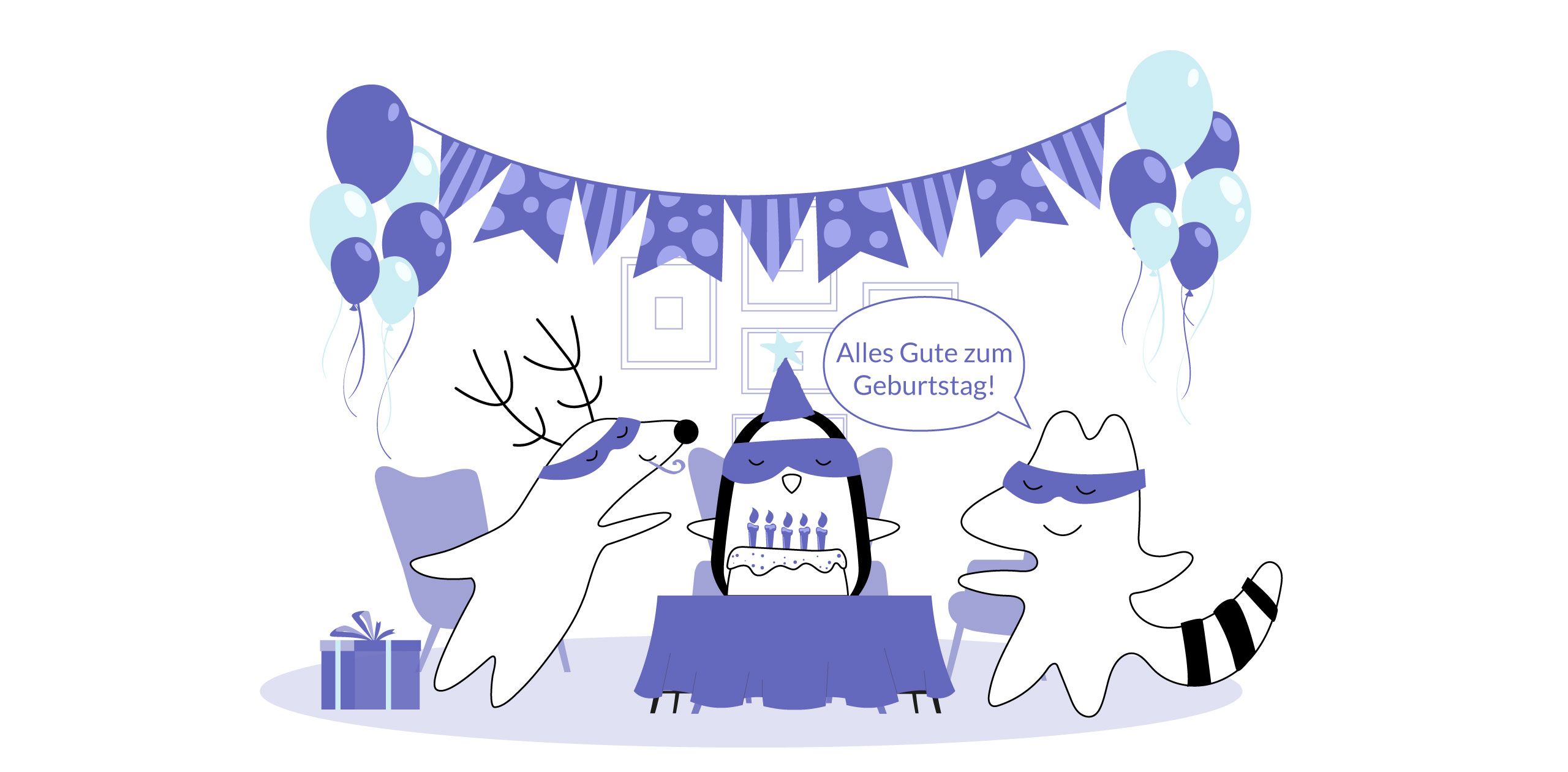
For lots of people, their birthday is a special day and they celebrate it according to their local traditions, which are different all over the world. Besides different birthday traditions, there are also different ways to say "Happy Birthday." So if you want to make sure your German friend understands your birthday wishes, you need to learn proper vocabulary and traditions.
While in the United States, you might purchase a sheet cake from a grocery store, in Germany they prefer to eat and enjoy their homemade cakes (and there are usually lots of those). This is just one thing among the many differences.
In this article, we want to show you how to say "happy birthday" in German. Let’s go over different ways to say "happy birthday" in German in different situations and explore some related vocabulary - so that you can feel prepared to spend a birthday in Germany.
How To Wish Someone a "Happy Birthday" in German?
There are two traditional ways to say "happy birthday" in German, and both are in frequent use. Just a little tip: Choose the one that feels easier for you to learn and focus on that one before you try to learn the next one. Too much information can make it hard in the beginning.
One Option is "Herzlichen Glückwunsch"
Even though it is a short phrase, it is known as one of the examples people use to show how complicated the German language sounds. Both of the two words have lots of consonants which makes their pronunciation hard for beginners sometimes.
Nevertheless, you do not have to worry as pronunciation is something that you learn quickly by studying the alphabet, listening to the sound of the letters, and repeating the words as often as you can.
What Does "Herzlichen Glückwunsch" Mean?
The literal translation of "Herzlichen Glückwunsch" is slightly different from the English "happy birthday." The word "herzlich" translates as "heartful" or "from the heart" in the English language, and "Glückwunsch" means "congratulations."
A direct translation could then be "heartful congratulations." If you want to add the birthday context to the phrase, you have to say "Herzlichen Glückwunsch zum Geburtstag," which translates literally as "heartful congratulations on your birthday."
Native
Translation
Herzlichen Glückwunsch
Happy Birthday / Heartful congratulations
Herzlichen Glückwunsch zum Geburtstag.
Heartful congratulations on your birthday.
Another Option: "Alles Gute zum Geburtstag"
A second way to say "happy birthday" in German is to wish somebody something. By saying "Alles Gute zum Geburtstag," you will say "All the best for your birthday." Another version that you might find in Germany will be "Alles Liebe zum Geburstag," which means "Everything nice for your birthday."
You can also find shorter versions of both phrases primarily written on social media. For example, when Germans congratulate other people on Facebook, they often write "Alles Gute" or "Alles Liebe." As you see, they dismiss saying "for your birthday" as the context is obvious.
Sometimes they even combine both wishes and write "Alles Liebe und Gute zum Geburtstag" or as short version, "Alles Liebe und Gute."
Native
Translation
Alles Gute zum Geburtstag.
All the best for your birthday.
Alles Liebe zum Geburstag.
Everything nice for your birthday.
Alles Gute.
All the best.
Alles Liebe.
All the best.
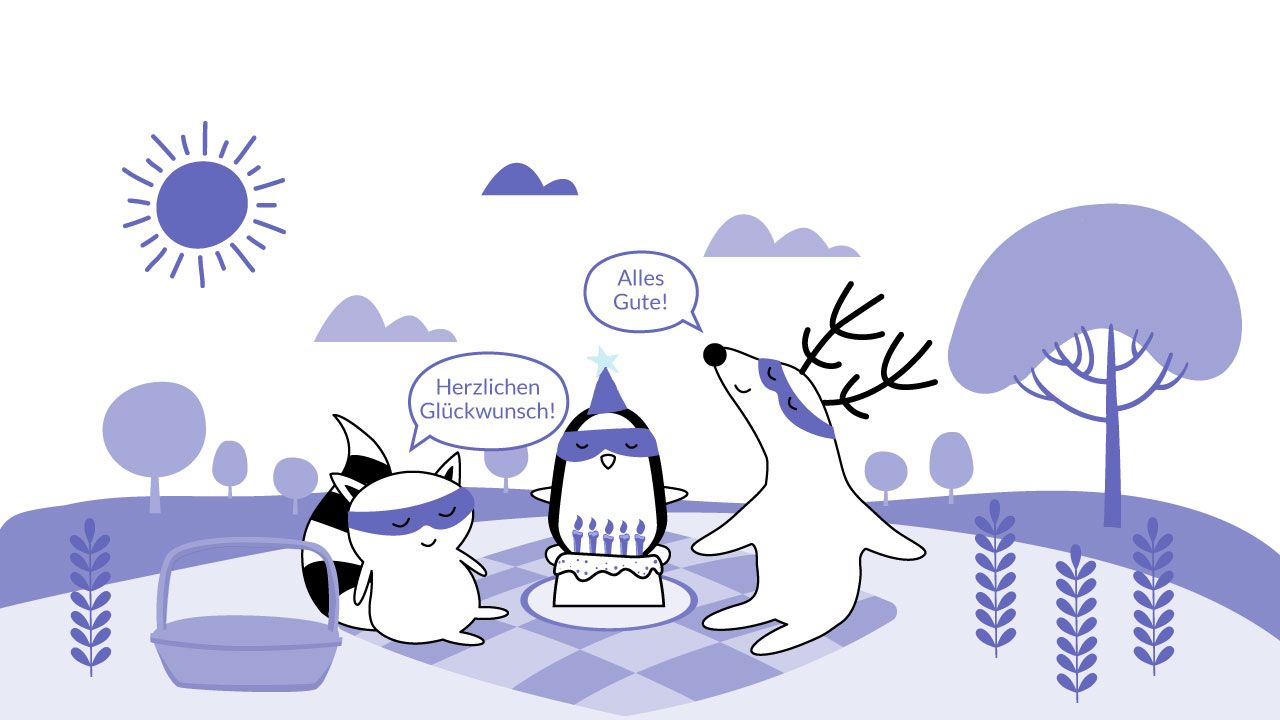
How to Make Wishes in German
Of course, you don't have to stick to the traditional birthday wishes and can also say something from the heart - like when you are talking to your friends and family. That is even better as it can make the birthday person very happy.
To express a wish in German, you have to use the verb "wünschen.” As you always wish something to someone, you are using two objects in phrases with this verb. One direct object (something) and one indirect object (to someone).
To say "I wish you ..." in German, you would say "Ich wünsche dir ..." and then add your wish. If you want to wish good luck, you would say "Ich wünsche dir viel Glück." Below, we will give you a few examples of birthday wishes, so you can choose the one you like most.
Native
Translation
Ich wünsche dir einen wunderschönen Geburtstag.
I wish you a wonderful birthday.
Ich wünsche dir einen schönen Tag mit Freunden und Familie.
I wish you a special day with friends and family.
Ich wünsche dir Freude und Gesundheit für dein Leben.
I wish you happiness and health for your life.
Ich wünsche dir ein glückliches und langes Leben.
I wish you a happy and long life.
If you want to make a wish for someone's birthday in a formal way, you just have to change the pronoun "dir" to an "Ihnen." So you would say, for example, "Ich wünsche Ihnen alles Gute zum Geburtstag" (I wish you all the best for your birthday).
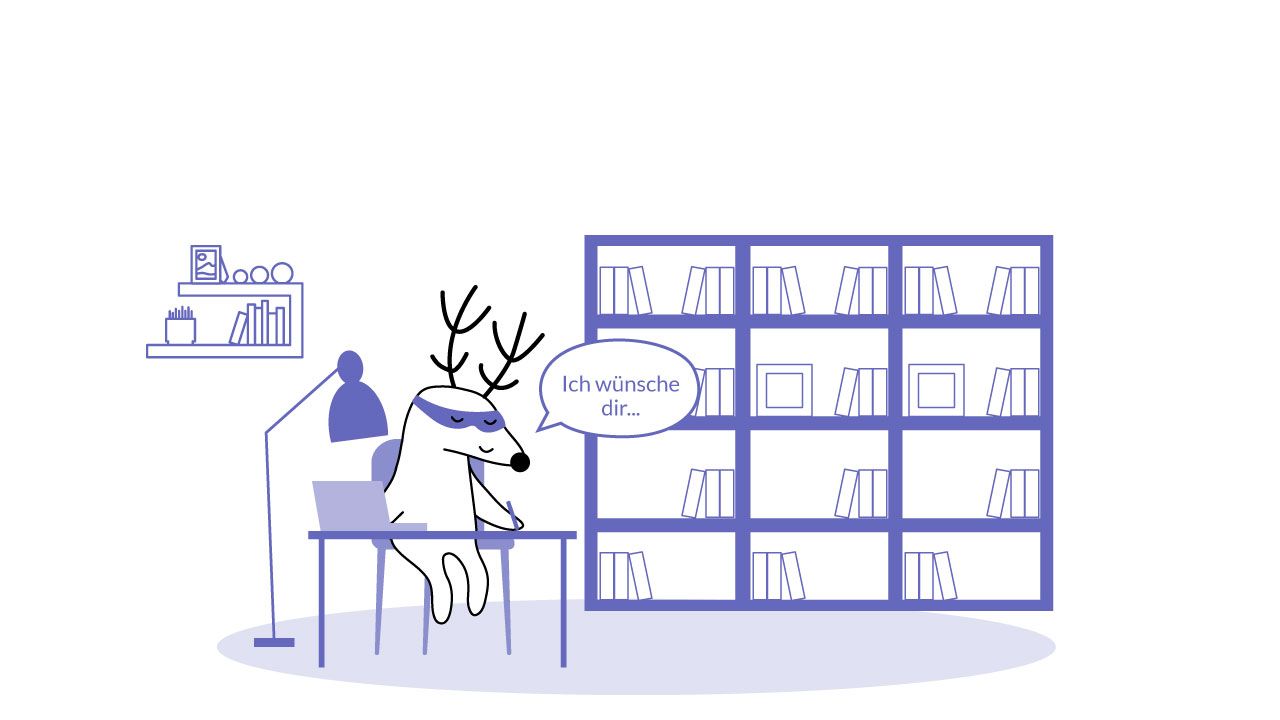
Belated Birthday Wishes in German
You might get into a situation where you forgot to congratulate a person on their actual birthday but still want to do this a few days later. You’ll want to say "happy belated birthday."
Even though the Germans are known to be organized, they still sometimes forget about birthdays. So, of course, there is a way to wish someone a happy birthday in German even after the actual celebration. It is pretty straightforward as you just have to add the word "nachträglich," which means "belated."
Native
Translation
nachträglich
belated
If you use the phrase "Herzlichen Glückwunsch zum Geburtstag," extend it to "Herzlichen Glückwunsch zum Geburtstag nachträglich." It works the same way with all the options, so you could also say, for example, "Alles Gute zum Geburtstag nachträglich."
Famous Birthday Songs in German
It’s always more enjoyable to learn new languages with music. Listening to music in a foreign language can improve your skills as you hear the native pronunciation, as well as hear repeated words and phrases often. Above all, you get in touch with new vocabulary.
As a result, looking at the German birthday songs might be a great idea - not only are you learning something new this way, but you also gain the possibility to sing at someone’s birthday one day.
What About Singing "Happy Birthday To You?"
This song is internationally known and translated to several languages, and so it exists in German, too. As the English influence is significant in Germany, some people hold on to the English chorus singing "happy birthday to you" and just change the word "dear" to German to refer directly to the person.
Nevertheless, there’s also a German translation of the song that says "Zum Geburtstag viel Glück" instead of "happy birthday to you." The phrase means "Best of luck on your birthday." Here are the lyrics:
Native
Translation
Zum Geburstag viel Glück,
zum Geburtstag viel Glück,
zum Geburtstag liebe / lieber ...
zum Geburtstag viel Glück.
Best of luck on your birthday,
Best of luck on your birthday,
For your birthday dear (name),
Best of luck on your birthday.
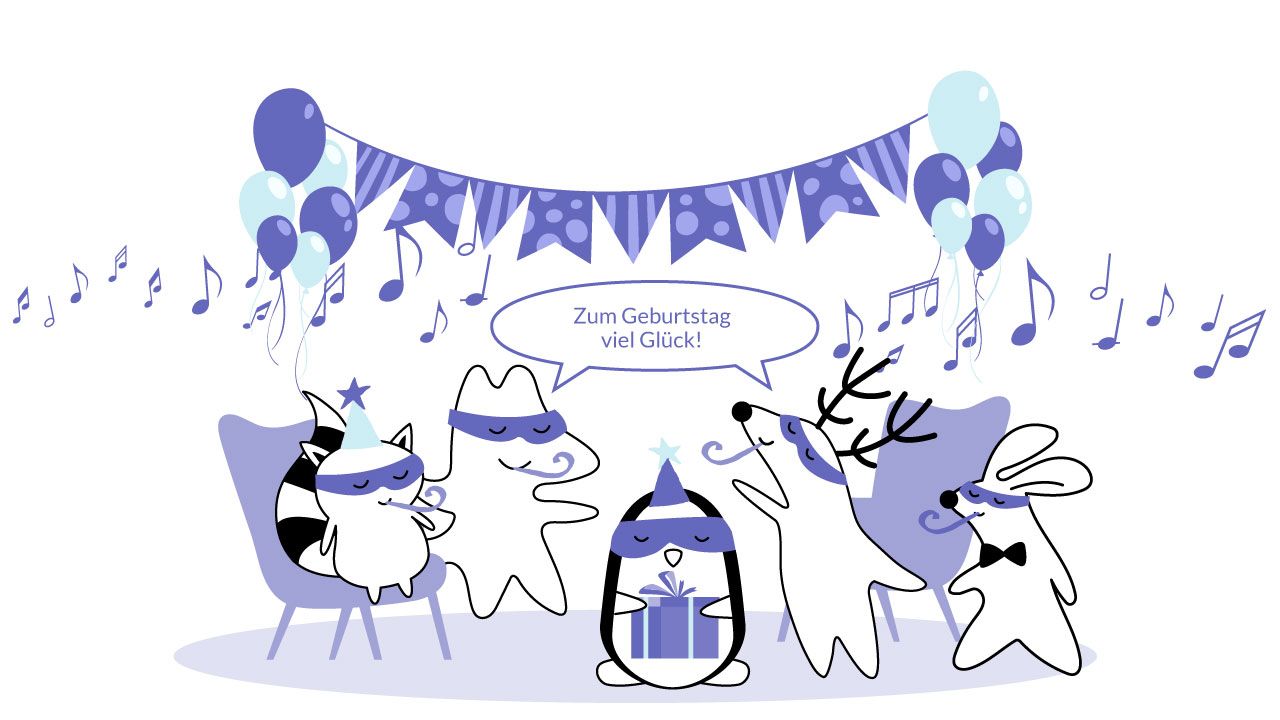
Another German Birthday Song to Practice Vocabulary
If you want to listen to a traditional German birthday song, you should look for "Wie schön, dass du geboren bist." The title translates to "How nice that you were born" in English and the song has several verses that introduce you to lots of German vocabulary.
It is a song for kids, which is why it is sung pretty slowly and offers an excellent opportunity for you to practice. So, enjoy the music and start singing!
Birthday Customs in Germany
When talking about celebrating a birthday, we should also look at the unique German birthday customs and traditions. Usually, a birthday is an important day for the Germans, and they like to celebrate it, even though they typically celebrate on a small scale.
As with everywhere, there are people in Germany who don't like to pay attention to their birthday or pretend they don't like it because they don't want to bother or don't have the time to organize something. In that case, friends or family members might help or throw a surprise party.
Celebrating Birthday With the Family
Usually, young people celebrate their birthday two times in Germany. First, they meet on a small scale with the close family, grandparents, cousins, etc., to eat cake and drink coffee. It is also common to meet up to have a big breakfast.
There is at least one birthday cake, and usually made at home and has the familiar birthday candles on it. In many cases, you will find several cakes on the table because Germans love to bake and eat cakes. Traditionally, the birthday boy or girl has to blow out the candles on the cake while making a birthday wish.
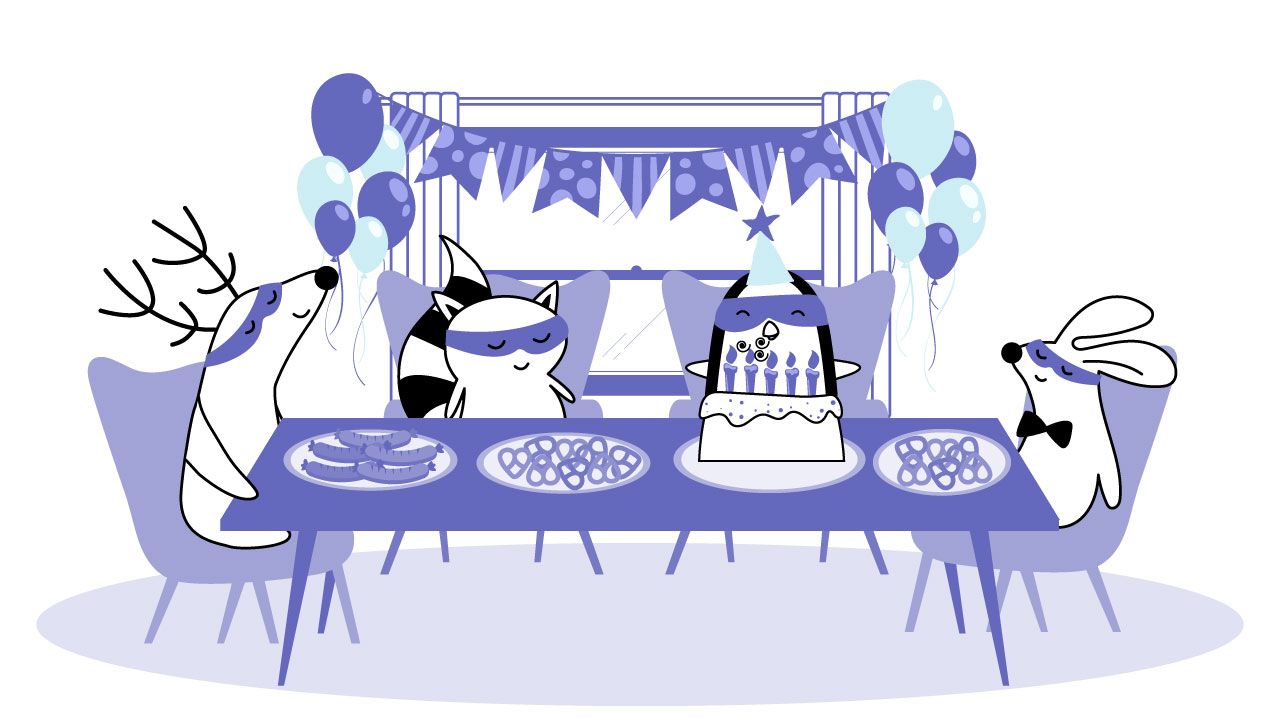
Throwing a Birthday Party for Friends
After celebrating with the family, Germans meet up with their friends. Sometimes they do that even on the same day or wait until the weekend. Some might just meet up for dinner or breakfast, but many people throw their own birthday parties or go out partying in bars and clubs.
If you get invited to a birthday party in Germany, congratulate the birthday person by saying "happy birthday" in German and bring a little gift as that is generally expected from the guests.
It does not have to be something big; you can, for example, make a nice little baked good or write a letter. Most people will bring prosecco, beer, or desserts to wish someone a happy birthday.
A Sum Up on German Birthday Vocabulary
As you probably noticed, the German word that you have seen most often in this post is "Geburtstag." It is the translation for "birthday," and you will find lots of vocabulary related to it. For example, the special person of the day is called the "Geburtstagskind" (the birthday boy or girl).
As we explained, during a birthday party in Germany, you will get to the point where the "Geburtstagskind" will cut their "Geburtstagskuchen" (birthday cake) after the "Kerzen" (candles) have been blown out.
Remember, it is expected to bring a little "Geschenk" (gift) when you go to a birthday party, which at least should be a card with a "Geburtstagsgruß" (birthday greeting).
Native
Translation
Geburtstag
Birthday
Geburtstagskind
The birthday boy or girl
Geburtstagskuchen
Birthday cake
Kerzen
candles
Geschenk
Gift
Geburtstagsgruß
Birthday greeting
Final Thoughts
We hope you will have the chance to experience a birthday party in Germany or that you can spend one of your birthdays there. It is an excellent opportunity to learn more about German culture and get in touch with locals very quickly.
If you see a birthday party on the street in Germany, don't hesitate to wish someone a happy birthday. It might be your invitation to a friendly and fun day where you can practice your German a lot. Just practice some of the "happy birthday" greetings we showed you above, and you will be ready to celebrate.







